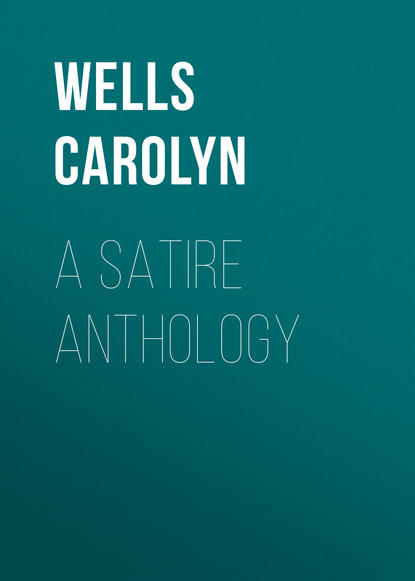По всем вопросам обращайтесь на: info@litportal.ru
(©) 2003-2025.
✖
A Satire Anthology
Автор
Год написания книги
2017
Настройки чтения
Размер шрифта
Высота строк
Поля
HOLLAND, that scarce deserves the name of land,
As but the off-scouring of the British sand,
And so much earth as was contributed
By English pilots when they heaved the lead;
Or what by th’ ocean’s slow alluvion fell,
Of shipwrecked cockle and the mussel-shell;
This indigested vomit of the sea
Fell to the Dutch by just propriety.
Glad then, as miners who have found the ore,
They, with mad labour, fished the land to shore;
And dived as desperately for each piece
Of earth as if ’t had been of ambergreese;
Collecting anxiously small loads of clay,
Less than what building-swallows bear away;
Or than those pills which sordid beetles roll,
Transfusing into them their dunghill soul.
How did they rivet, with gigantic piles,
Thorough the centre their new-catched miles;
And to the stake a struggling country bound,
Where barking waves still bait the forcéd ground;
Building their watery Babel far more high
To reach the sea, than those to scale the sky.
Yet still his claim the injured ocean laid,
And oft at leap-frog o’er their steeples played;
As if on purpose it on land had come
To shew them what’s their mare liberum.
A daily deluge over them does boil;
The earth and water play at level-coil.
The fish ofttimes the burgher dispossessed,
And sat, not as a meat, but as a guest;
And oft the Tritons and the sea-nymphs saw
Whole shoals of Dutch served up for cabillau;
Or, as they over the new lever ranged,
For pickled herring, pickled heeren changed.
Nature, it seemed, ashamed of her mistake,
Would throw their land away at duck and drake,
Therefore necessity, that first make kings,
Something like government among them brings;
For, as with pigmies, who best kills the crane,
Among the hungry he that treasures grain,
Among the blind the one-eyed blinkard reigns,
So rules among the drowned he that drains.
Not who first see the rising sun commands,
But who could first discern the rising lands.
Who best could know to pump an earth so leak,
Him they their Lord and Country’s Father speak.
To make a bank was a great plot of state;
Invent a shovel, and be a magistrate.
Hence some small dike-grave unperceived invades
The power, and grows, as ’twere, a king of spades;
But, for less envy, some joined states endures,
Who look like a commission of the sewers:
For these Half-anders, half wet, and half dry,
Nor bear strict service, nor pure liberty.
’Tis probable religion, after this,
Came next in order, which they could not miss.
How could the Dutch but be converted, when
The apostles were so many fishermen?
Besides, the waters of themselves did rise,
And, as their land, so them did rebaptize.
Andrew Marvell.
THE DUKE OF BUCKINGHAM
SOME of their chiefs were princes of the land:
In the first rank of these did Zimri stand,
A man so various that he seemed to be
Not one, but all mankind’s epitome:
Stiff in opinions, always in the wrong,
Was everything by starts, and nothing long;
But, in the course of one revolving moon,
Was chymist, fiddler, statesman, and buffoon;
Then all for women, painting, rhyming, drinking,
Besides ten thousand freaks that died in thinking.
Blest madman, who could every hour employ
With something new to wish or to enjoy!
Railing and praising were his usual themes,
And both, to shew his judgment, in extremes;
So over-violent, or over-civil,
That every man with him was god or devil.
In squandering wealth was his peculiar art;
Nothing went unrewarded but desert:
Beggared by fools, whom still he found too late,
He had his jest, and they had his estate;
He laughed himself from court, then sought relief
By forming parties, but could ne’er be chief;
For, spite of him, the weight of business fell
On Absalom and wise Achitophel.
Thus, wicked but in will, of means bereft,
He left not faction, but of that was left.
John Dryden.
ON SHADWELL
ALL human things are subject to decay,
And, when Fate summons, monarchs must obey.
This Flecknoe found, who, like Augustus, young











